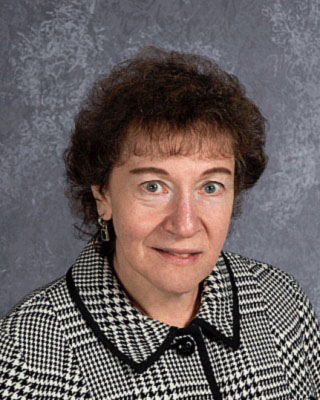How can principals help ease new teachers into their school?
New teachers have many worries. Will my lessons be engaging? Will the students like me? Will I be able to maintain discipline?
But there are other equally important concerns, and we tend to forget about them when we’ve been teaching at the same school for a while - or when we’re the principal. These are the concerns of teachers who may or may not be new to the profession but are new to our school.
Every school has a different culture with different norms. How are things “done” at your school?
Most schools have a teachers’ handbook but these deal in generalities. They don’t speak to the specifics of students or parents or the nuances of day-to-day school procedures.
New teachers need to know:
-
School Basics
-
Where are the supplies stored?
-
How do I get a broken desk repaired?
-
Do I need to know anything special about the copy machines? Are there presets that shouldn’t be changed?
-
Are there teacher-designated bathrooms? And, where are they?
-
Social Norms
-
When classes dismiss for the day, do most teachers leave as soon as possible, or do they stay after to grade papers?
-
Do colleagues readily share ideas and watch each other teach, or are classrooms private?
-
Have students been conditioned to expect rewards as incentives for learning?
-
Are teachers expected to sub for each other during their free periods, or is a substitute teacher always requested?
-
Is there an informal day of the week when teachers eat lunch together?
-
What about a sign-up sheet to bring in a Shabbos treat?
Beyond the first week
The questions don’t stop after the first week of school.
-
What are the teacher’s responsibilities regarding parents? Are they expected to communicate often or only at parent/teacher conferences? Is a phone call or email sufficient or are written notes and documentation required?
-
What are the teacher’s responsibilities to students? Is it assumed that students will be invited to share Shabbos or Yom Tov celebrations outside of class? Are teachers expected to attend after-school sports events?
-
There’s a scuffle during recess on the playground. Which parent will take it in stride, and which will turn “helicopter”?
-
It’s progress report time: How many words should these paragraphs be?
-
The annual benefit is approaching: Are teachers expected to go?
-
School is ending soon: Do we teach until the last minute or can we plan fun activities for the last week?
So how can we make new teachers feel comfortable?
Let’s face it, as a principal we’re in charge. No one wants to look foolish in front of us - least of all, a new hire. But that new hire has hundreds of questions. He or she needs someone to talk to - frankly and without anxiety. The principal can’t, nor should be, the one to answer these questions and more. The best thing we can do to ease new teachers into their new school is to pair new teachers up with veteran teacher “buddies.”
The Buddy System
“Buddy” each new teacher with a veteran teacher at the school who has volunteered for this task.
Meet with these volunteers to give them some guidance. Encourage them to be supportive and to answer any questions. (Remember: there are no irrelevant questions!) Help them set up checkpoints throughout the year to proactively catch any problems.
Meet with new teachers and their “buddies” the day before opening-day staff meetings to highlight anything you think might be unique to your school. This includes mission, values, major events, signature experiences, and, of course—where the supplies are kept.
Most important, though: never forget that you were once a newbie too.

About the Author: Mrs. Miriam Schiller
Miriam Schiller has been immersed in education for almost 50 years, teaching everything from 2-year-olds to 8th graders. For almost 30 years, she served as Principal of Akiba-Schechter Jewish Day School in Chicago, IL where she tripled the enrollment of the Kindergarten-8th grades and doubled the number of children in the preschool. Under Schiller's tenure, the school became known for its innovative strategies, including multi-age classrooms, a buddy system, and Schiller's one-on-one method of teaching children to read. Schiller holds a BA in Elementary Education from the University of Illinois and a MA in Administration and Supervision from Loyola University. She is passionate about Jewish education and about using her expertise to fuel the next generation of day schools. Currently, Mrs. Schiller works in the Curriculum Department of Walder Education and is available for coaching by appointment.